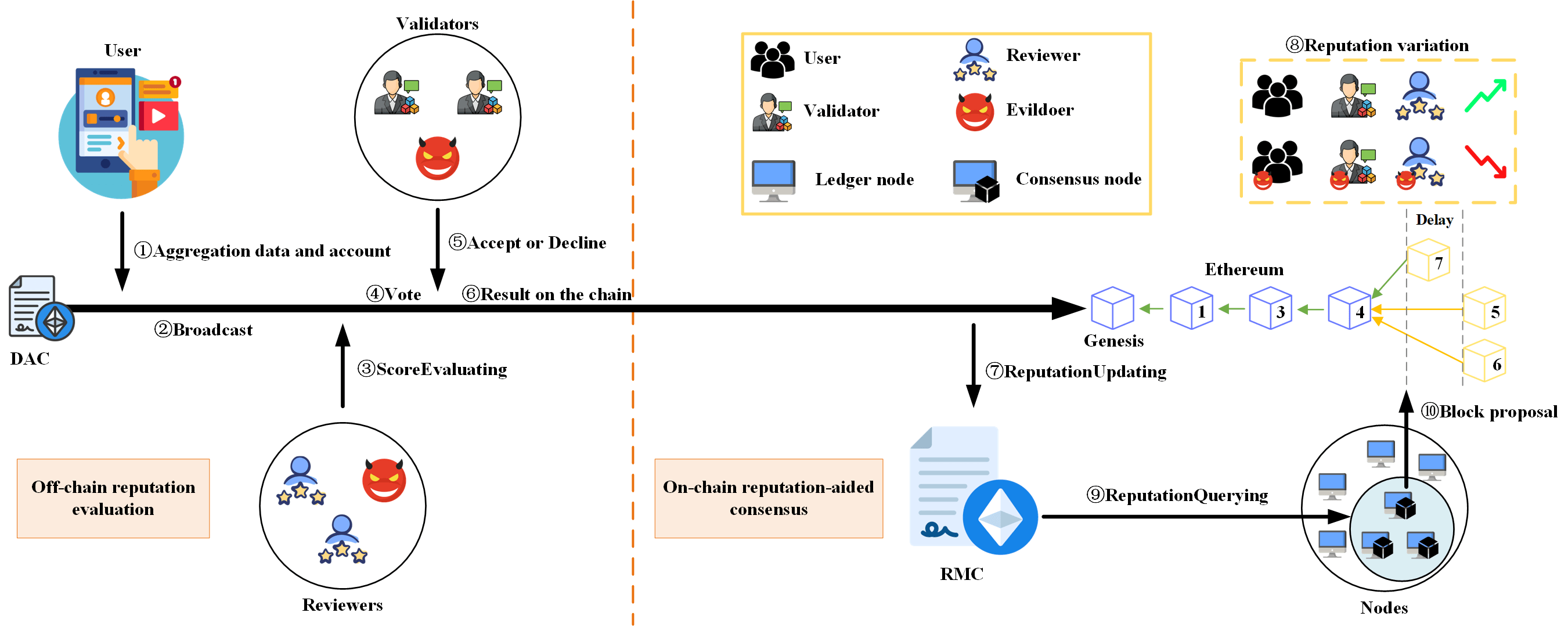 Open Access
Open Access
ARTICLE
On Designs of Decentralized Reputation Management for Permissioned Blockchain Networks
1 School of Electronic and Optical Engineering, Nanjing University of Science and Technology, Nanjing, 210094, China
2 School of Mechanical Engineering and Automation, Harbin Institute of Technology, Shenzhen, 518055, China
3 College of Electronics and Information Engineering, Shenzhen University, Shenzhen, 518060, China
4 School of Computer Science and Technology, Harbin Institute of Technology, Shenzhen, 518055, China
* Corresponding Author: Long Shi. Email:
(This article belongs to the Special Issue: The Bottleneck of Blockchain Techniques: Scalability, Security and Privacy Protection)
Computer Modeling in Engineering & Sciences 2024, 139(2), 1755-1773. https://doi.org/10.32604/cmes.2023.046826
Received 16 October 2023; Accepted 10 November 2023; Issue published 29 January 2024
Abstract
In permissioned blockchain networks, the Proof of Authority (PoA) consensus, which uses the election of authorized nodes to validate transactions and blocks, has been widely advocated thanks to its high transaction throughput and fault tolerance. However, PoA suffers from the drawback of centralization dominated by a limited number of authorized nodes and the lack of anonymity due to the round-robin block proposal mechanism. As a result, traditional PoA is vulnerable to a single point of failure that compromises the security of the blockchain network. To address these issues, we propose a novel decentralized reputation management mechanism for permissioned blockchain networks to enhance security, promote liveness, and mitigate centralization while retaining the same throughput as traditional PoA. This paper aims to design an off-chain reputation evaluation and an on-chain reputation-aided consensus. First, we evaluate the nodes’ reputation in the context of the blockchain networks and make the reputation globally verifiable through smart contracts. Second, building upon traditional PoA, we propose a reputation-aided PoA (rPoA) consensus to enhance security without sacrificing throughput. In particular, rPoA can incentivize nodes to autonomously form committees based on reputation authority, which prevents block generation from being tracked through the randomness of reputation variation. Moreover, we develop a reputation-aided fork-choice rule for rPoA to promote the network’s liveness. Finally, experimental results show that the proposed rPoA achieves higher security performance while retaining transaction throughput compared to traditional PoA.Graphic Abstract

Keywords
Cite This Article
 Copyright © 2024 The Author(s). Published by Tech Science Press.
Copyright © 2024 The Author(s). Published by Tech Science Press.This work is licensed under a Creative Commons Attribution 4.0 International License , which permits unrestricted use, distribution, and reproduction in any medium, provided the original work is properly cited.


 Submit a Paper
Submit a Paper Propose a Special lssue
Propose a Special lssue View Full Text
View Full Text Download PDF
Download PDF Downloads
Downloads
 Citation Tools
Citation Tools